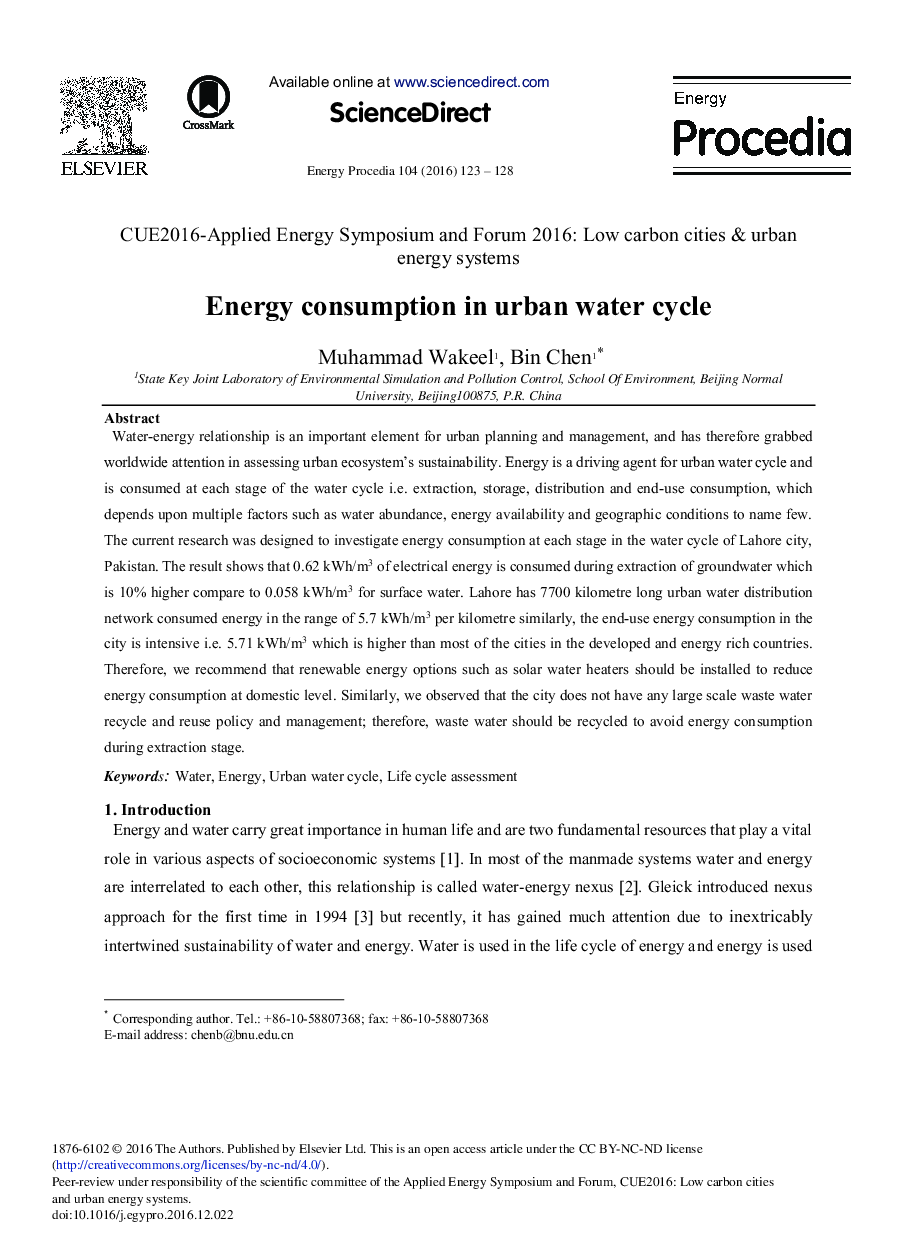| Article ID | Journal | Published Year | Pages | File Type |
|---|---|---|---|---|
| 5446349 | Energy Procedia | 2016 | 6 Pages |
Abstract
Water-energy relationship is an important element for urban planning and management, and has therefore grabbed worldwide attention in assessing urban ecosystem's sustainability. Energy is a driving agent for urban water cycle and is consumed at each stage of the water cycle i.e. extraction, storage, distribution and end-use consumption, which depends upon multiple factors such as water abundance, energy availability and geographic conditions to name few. The current research was designed to investigate energy consumption at each stage in the water cycle of Lahore city, Pakistan. The result shows that 0.62 kWh/m3 of electrical energy is consumed during extraction of groundwater which is 10% higher compare to 0.058 kWh/m3 for surface water. Lahore has 7700 kilometre long urban water distribution network consumed energy in the range of 5.7 kWh/m3 per kilometre similarly, the end-use energy consumption in the city is intensive i.e. 5.71 kWh/m3 which is higher than most of the cities in the developed and energy rich countries. Therefore, we recommend that renewable energy options such as solar water heaters should be installed to reduce energy consumption at domestic level. Similarly, we observed that the city does not have any large scale waste water recycle and reuse policy and management; therefore, waste water should be recycled to avoid energy consumption during extraction stage.
Related Topics
Physical Sciences and Engineering
Energy
Energy (General)
Authors
Muhammad Wakeel, Bin Chen,
